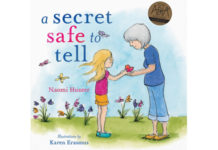Starting a family can be a bit scary, especially when you realise that the baby growing in your womb depends on you for everything. And just about everything you put into your body will affect your baby. It seems like there’s a lot you have to know – what to eat, when to exercise, how you should feel at this stage of pregnancy, whether or not you should visit the doctor, what to expect during childbirth and so on.
Luckily, there are many books available to inform you about pregnancy. Unluckily, there are so many that you may find it hard to choose and identify a book which is reliable and written by someone with appropriate expertise. So how do you sort reliable information based on scientific evidence from dodgy opinion? How do you know the author really knows anything about the parenting business? And once you’ve worked that out, how do you choose from the many available titles?
What do you want to know?
 The first thing to decide when looking for a book is what you want it to cover. Are you looking for information about how to get pregnant or the things you need to do after you’re pregnant, to make sure you and your baby stay healthy? Or are you more interested in how your baby will grow week by week inside your womb, how you will feel or what to expect when it’s time to give birth? Is there a specific topic you’d like more information on, like pregnancy health or having sex while you’re pregnant?
The first thing to decide when looking for a book is what you want it to cover. Are you looking for information about how to get pregnant or the things you need to do after you’re pregnant, to make sure you and your baby stay healthy? Or are you more interested in how your baby will grow week by week inside your womb, how you will feel or what to expect when it’s time to give birth? Is there a specific topic you’d like more information on, like pregnancy health or having sex while you’re pregnant?
Different pregnancy books contain different information, so it’s important to have a good idea of what you want to know before you start trying to decide which book is worth spending your hard earned cash on. When you start looking, you will notice that some sources incorporate all the information about pregnancy into a single book (and some even go on to include the early years of parenting!) These sorts of books are a great way to get an overview of what’s going on inside and what to expect for the future, but they’ll probably miss a lot of the details.
If you’re looking for more detailed information or information about a specific topic, it’s probably best to choose a book (or two) that deals with a specific stage of pregnancy, or a specific pregnancy topic. For example a book that details pregnancy week by week might be best if you want to know how your baby is developing and your body is changing as your pregnancy progresses. These types of books often also have information about when you should visit the doctor and the types of tests and health checks you should have as your pregnancy progresses (but bear in mind that this information differs from country to country and it’s always important to talk to a doctor about pregnancy health).
But perhaps you’re interested in a specific topic. You might be trying to decide whether to give birth at home or in a hospital, in which case a book dealing specifically with child birth and labour is most appropriate. You might require information on a specific health condition, for example one that runs in your family, and in this case it’s best to look for a book that deals with that specific condition. If you’re looking for very specific information, bear in mind that there are also a lot of pregnancy website that have reliable information (and lots that contain less reliable information) and utilising this information might save a bit of money.
Author
Once you’ve decided what you want to know, and perhaps compiled a list of books that look interesting, it’s time to consider who wrote the information. A lot of people claim to know it all, but how do you know the author of the book you’re interested in really does? Take a look at the author bio, usually found on the book jacket or in the first few pages. What experience do they claim? Are they a midwife, nurse, doctor, full time parent?
What qualifies as ‘appropriate expertise’ really depends on the type of information you’re after. If you want to know how pregnancy feels and what a woman experiences, you might be looking for a book written by another mum. But often professional qualifications are also needed, for example if you’re needing information about pregnancy health or weighing up childbirth options or information on what Australian women should do while they’re pregnant (e.g. the checks, immunisations and supplements they should have). Check whether the author (or a member of the editorial board for the book) is a member of a relevant professional organisation, such as one for Australian Paediatricians, nurses, dieticians or midwives. Some professionals will have this information listed after their name at the beginning of the book, for others you may need to hop online and google them.
Age
 Like computers and mobile phone technology, information about pregnancy changes ll the time. For example, Australian guidelines on alcohol consumption during pregnancy changed in 2009, and it is now recommended that women do not consume any alcohol while they are pregnant. Other information like what to eat and what tests and health checks to have while pregnant also change over time. As a general rule a more recent book is better and it’s probably best to buy something published within the last five years.
Like computers and mobile phone technology, information about pregnancy changes ll the time. For example, Australian guidelines on alcohol consumption during pregnancy changed in 2009, and it is now recommended that women do not consume any alcohol while they are pregnant. Other information like what to eat and what tests and health checks to have while pregnant also change over time. As a general rule a more recent book is better and it’s probably best to buy something published within the last five years.
Edition
Another important consideration is how many times has the book been published? The more editions there are, the more likely the book is to be successful, popular and thoroughly reviewed.
Publisher
It’s also a good idea to find out which organisation published the book and whether they have a good reputation or expertise in publishing pregnancy information. An online or general publisher may not have checks in place to make sure the information they publish is accurate. Reputable publishing houses that are known for publishing nonfiction or science are more likely to verify the accuracy of their products. Books published by organisations (e.g. a hospital or pregnancy association) or government departments that deal with pregnancy are also likely to be reputable.
Place of publication
Although many aspects of pregnancy are universal, some depend on geographical location – for the types of tests and immunisations which are recommended or particular health risks from foods differ from country to country. Others may differ according to culture or religion, or touch on specific products that may not be available in different countries. You don’t necessarily need a book published in your country, but you’ll need to bear in mind that some of the information may not apply or be different if you purchase a book published overseas.
Reviews
See a book that looks interesting but you’re not too sure about it? Look for some reviews so you can find out what other people thought of this book. Newspapers, parenting magazines and bookshops are good places to find reviews. It’s harder to publish a review in print than on the internet, however printed reviews are still opinion pieces and the credentials of the author and any biases that might inform their opinion still need to be considered.
When look for reviews online, remember that reviews might not be based on experience or knowledge- almost anyone can start a blog or add a review to someone else’s website these days. Look for reviews published on the websites of reputable organisations (e.g. of health professionals) or by people with appropriate expertise. Try also looking at online bookshops and see how many times it has been given a high positive rating and if these reviews are generally consistent. You’ll probably find sites allow you to list reviews in order of best, worst or most helpful. This can be a good way to get a range of opinions, but bear in mind that reviews that seem too good to be true, might just be. If one person has posted a glowing review on a parenting chat site (but have never posted anything else) they may just be the author’s best friend or alter–ego.
While you may not agree with the reviewers, what other people think can help you decide if you want to bother with that book. If you’re lucky, someone may have written a detailed and reasonably objective critique for your viewing pleasure. Be aware, though, that opinions posted on the internet may not be the most informed, or may have hidden biases that you do not hold to.
Recommendations
If you have friends or family members who have recently been pregnant, they might be able to recommend a good book. Doctors and other health professionals may also be able to make recommendations. But bear in mind that their information needs might be different from yours, so you might still need to check things like the type of information, author and publisher.
Readability
 Finally, but not least important, find a book which is interesting for you. There’s no point buying a book if you zone out after a few paragraphs! Want pictures and friendly diagrams? Buy a book with that. In depth research on the most recent theories? Funny anecdotes of sexuality during pregnancy? Clean notes of things to keep in mind? Whatever you’re looking for there is almost certainly a book (or three) out there for you.
Finally, but not least important, find a book which is interesting for you. There’s no point buying a book if you zone out after a few paragraphs! Want pictures and friendly diagrams? Buy a book with that. In depth research on the most recent theories? Funny anecdotes of sexuality during pregnancy? Clean notes of things to keep in mind? Whatever you’re looking for there is almost certainly a book (or three) out there for you.
Drop into your local bookstore so you can flick through the book before you buy it, or see if you can borrow it from a friend or the library. Many books now provide online previews so potential buyers can get a feel for the content and style before they commit to buying. Check for a preview online if you don’t have time to trawl the bookshops.
Use the Choosing pregnancy books checklist to make sure you’ve considered all the important points.
Accessibility
A good pregnancy book also needs to be accessible, which means you must be able to afford it and get your hands on it somewhere. Whether it’s online, from the local bookstore or a library doesn’t really matter- what matters is that you can get a copy. But pregnancy books can be expensive, especially if you need several covering different topics, so try to think of ways you can save money, while still getting the information you need. Shopping online is an easy way to compare prices and find the best deal. For example www.booko.com.au compares all the Australian book suppliers.
Borrowing or swapping books with friends and family members is a good idea. Ask other mums you know with slightly older children- chances are that if their baby is already two, they won’t be using that pregnancy book again. Even though you need books published recently, you’ll probably be able to find recent second hand books if you do a bit of searching- many women hand on their pregnancy books once they have used them for the first child. And don’t forget the good old library- you’ll be able to borrow books for free and read a wider selection.
Happy pregnancy reading!




 (3 votes, average: 3.67 out of 5)
(3 votes, average: 3.67 out of 5) 






